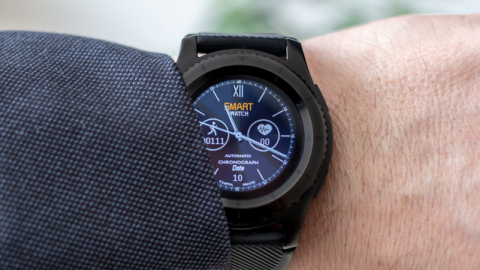Breadcrumb
Human-Technology Interface Networking

Are you interested in exploring the complexity of the human-technology interface in relation to health and associated opportunities to improve societal well-being? Solutions to complex biomedical or public health problems demand the formation of interdisciplinary teams that are ready to address these issues, while advancing fundamental science and engineering.
The Institute for Clinical and Translational Science, Csomay Center for Gerontological Excellence, and the Research Development Office invite you to complete a networking survey aimed at connecting researchers interested in the human-technology interface as the first step for bringing together interested researchers.
Transformations hinge on scientific and engineering innovations by interdisciplinary teams to enable discovery and optimize health. According to the U.S. Census, older adults (>65) comprise the fastest growing segment of the nation's population (census.gov). Most live in households with computer and internet access. The convergence of the demographic shift with social movements towards aging in place and increases in hospital at home programs has made technological transformation time critical.
Survey and Responses
Complete this brief networking survey to let others know your interest in the topic. View the completed survey responses here. See below for the survey questions.
Networking Survey Questions
- General demographics
- What is your interest in the human-technology interface?
- What expertise are you looking for in a collaborator(s)?
- What expertise can you offer a collaborator(s)?
- Biosketch
Next Steps
The networking survey is the first step in coalescing a campus network around the human-technology interface related to health. Our goal is to identify the community of interested researchers and then invite their participation in future networking and ideation events aimed at securing external funding support.
Potential Funding Opportunities
Several mechanisms at the National Institutes of Health (NIH) and the National Science Foundation (NSF) lend themselves to addressing these complex issues using interdisciplinary teams.
- NIH and NSF collaboration on interagency, Smart Health and Biomedical Research in the Era of Artificial Intelligence and Advanced Data Science program (NOT-OD-21-011) targets the development of transformative high-risk, high-reward advances in computer and information science, engineering, mathematics, statistics, behavioral and/or cognitive research to address pressing questions in the biomedical and public health communities.
- NSF’s “Future of Work at the Human-Technology Frontier” is one of ten transformative “big ideas” supporting bold, long-term research at the frontiers of science and engineering. It is a collaborative effort with NSF’s directorates for Computer and Information Science and Engineering, Education and Human Resources, and Engineering. NSF Behavioral and Cognitive Sciences Division Director Marc Sebrechts states, “We urge our scientific community to come together with their colleagues in other disciplines to develop research proposals that focus on understanding the future of work in ways that will benefit individuals and neighborhoods across the U.S.”
- NIH invites interdisciplinary proposals in PAR-20-180, PAR-20-070, PAR-19-381 and 139 other program announcements.
- NSF invites interdisciplinary proposals that are not targeted by a Program Solicitation.
Funding Opportunities from Pivot
Sponsored by:
The Institute for Clinical and Translational Science, Csomay Center for Gerontological Excellence, and the Research Development Office